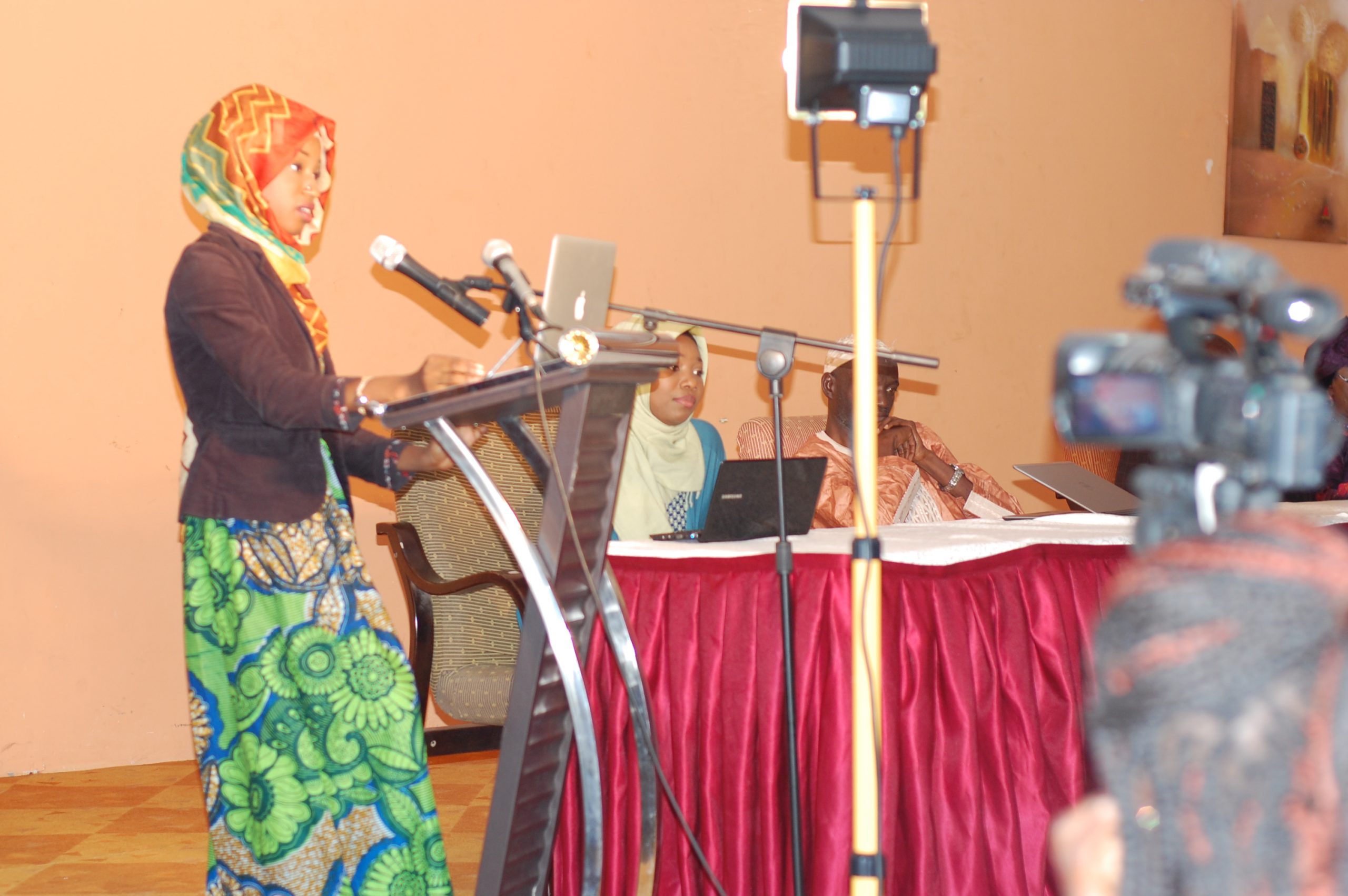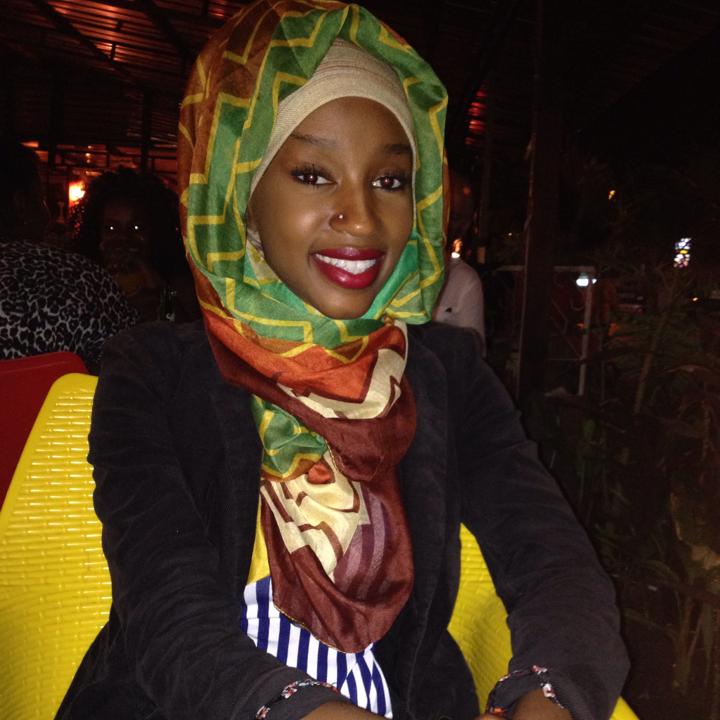
Scholar-Elect Mamasa Camara on what drew her to study female circumcision in its historical, political and social context.
History allows me to pursue knowledge in a way that helps reconcile my own complex identity because it suggests that there are larger processes responsible for constructing who and why we are.
Mamasa Camara
Mamasa Camara combines her research on female circumcision with a strong record of activism in women’s health in West Africa. During the summer following her freshman year at Spelman College, she convinced the Vice President of The Gambia, Isatou Njie Saidy, to endorse a conference she had organised on women’s health. The conference has been held annually ever since and is televised nationally. It has opened up a space for women to receive critical health screenings, discuss important health issues such as female circumcision and begin to take control of a discussion which is often seen through a Western lens.
Through her MPhil at the University of Cambridge she will continue to study female circumcision in its historical, political and social context in order to understand it better and improve outcomes for women.
Mamasa has a family history linked to health and wellbeing. Her parents were born in The Gambia where her father was a traditional healer, a role that was passed down to him. Although she was born in the Bronx, Mamasa lived in The Gambia as a young child, but moved back to the US when she was four after her mother became ill and died. In New York, her father’s role meant he was viewed as a community leader and their home was filled with culture and history.
At the age of around seven, Mamasa moved back to The Gambia and experienced a different education system. “I remember experiencing an education that seemed to be more valued in the Gambia than it was in my US classroom and I was fascinated by this juxtaposition. Because Gambian classrooms lacked so many resources, students were forced to work harder, develop unique approaches to solving problems and thus cultivate an appreciation for education that was reflective of their unique experience. This shaped my educational career and made me more curious and self-motivated.”
Another inspiration was her father. Although he could not read or write, he really valued education and passed that thirst for learning new things on to Mamasa. “My father valued education in a way that was unusual for the deeply traditional and gendered environment in which we belonged,” she says. He often asked strangers in the community to help her with her homework. When she was at middle school, he bought her her first computer and she remembers feeling like the world was at her fingertips, falling in love with storytelling and being fascinated with discovering new words.
Improving the lives of others
At home, she understood that she had a responsibility to use her position of privilege to improve the lives of those around her, especially women. “I was always committed to addressing issues I found problematic or that served as an impediment to development, like organising women’s English classes so that they are able to communicate with their children’s teachers or fill out basic documents at hospitals, holding fundraisers and food drives, leading community organisations and essentially organising initiatives both in the US and in the Gambia that were attuned to the complexities of community needs,” says Mamasa.
She understood that school was one of the only places where she could ask questions and she was particularly interested in history. “History allows me to pursue knowledge in a way that helps reconcile my own complex identity because it suggests that there are larger processes responsible for constructing who and why we are,” she says.
Most of the students in her community did not go to college. “Up until high school no one spoke to me about college. There was little hope that a child of immigrants from the South Bronx would make it to college,” she says. While she was there a substitute teacher told students about Spelman College, a college for black women in in Atlanta. “She described it almost as a utopia for black women and I never forgot it,” she says.
Mamasa applied and was accepted, winning a scholarship that covered her four years of studies. However, she felt socially awkward among a more privileged college world. ““It was the first time that I realised that, although I performed well academically, I was disconnected socially,” she says. After initially opting for a pre-med course, she majored in history. She became best friends with a Syrian student who was very active in Syrian politics and felt similarly disconnected from US society. This fuelled her desire for social activism and she chose to focus on women’s health.
She also did a course in the African diaspora and the world which forced her to examine herself and ask questions she wasn’t able to at home. “It forced me to come out of my shell, discover myself and realise I could affect change,” says Mamasa.
Female circumcision
Having learnt initially about female circumcision she started questioning why the western narrative about it seemed the most accessible. “No-one spoke about it in my community and I wondered why, why is the narrative about female circumcision being both produced and consumed in the West and how can African women be centred in their own experiences,” she says. She researched how female circumcision is practised in different places and what it means to those who practise it. She decided to organise a conference about female health in The Gambia in order to gain insight into the African perspective and create a space for mutual and transnational understandings. She started planning it from the US and wrote to the Vice President of The Gambia to get her endorsement. She said there needed to be a conversation about female circumcision in order to enact change.
Mamasa travelled to The Gambia and was extremely persistent, camping outside the Vice President’s office, printing out the same letter every day and giving it to security guards. She gave a copy to a relative who is a journalist and it eventually reached the Vice President. She talked to national stakeholders, healthcare professionals, women’s groups and the media in order to initiate an interdisciplinary approach to the sensitive topic. Just before it was due to start Mamasa got a call to say the Vice President wanted to see her and that the event would be televised.
The first conference was held and was very successful, breaking the silence around female circumcision and giving women a space to speak about it. It also gave Mamasa an insight into other related issues, such as women’s rights and access to healthcare. “I knew I had to dedicate my undergraduate years to this,” she says. “It was important for me to connect back to The Gambia.”
The conference has been held annually ever since and has developed over the years, with a greater emphasis being placed on creating a culture of wellness. Women are less reluctant to share their experiences, says Mamasa, and more are entering hospitals where they had not before. The conference works with local community health centres and has discussed other health issues, such as Ebola.
In 2014 during her third year, she spent a semester in China studying the African diaspora in Asia and how they have created community. She says: “It changed my life. I was forced me to be more conscious about myself. I examined how social realities like harsh immigration policy and racism affect the way Africans construct community among and engage with their Chinese host population.”
Her research paper on the subject won an award. She adds: “My research in China solidified the idea that the way we perform our lives is affected by all these other processes. It created a new level of consciousness and made me more critical of my own country."
She returned to Spelman where her research work focused on Kenyan women during the colonial era and the links between female circumcision, patriarchy and the British political discourse. She chose Kenya as she wanted to divorce her activist work from her academic work and she was interested in how the British government’s attitudes and policies affected women. In the last year she has also been contributing articles about the disapora to the African digital magazine, OkayAfrica.
For her MPhil at the University of Cambridge she will study how historical forces inform contemporary moments in African Studies by examining discourse on female circumcision and its real-world implications. “I want to help fix misconceptions about African history,” she says.

Mamasa Camara
- Alumni
- United States
- 2016 MPhil African Studies
2018 PhD Multi-disciplinary Gender Studies - Churchill College
As the trilingual daughter of a traditional West African healer, my identity embodies the complexity of diaspora, migration, and collective memory. My research interests are in African identity formation, the social, political, and historical processes which inform various African experiences across and through diaspora. Through a historical lens, I have investigated the practice of female circumcision and how to apply this analysis to aid contemporary efforts to address the practice. My past research explored British colonial narratives on female circumcision in Kenya and received the highest honour thesis award in the History Department at Spelman College. In 2012, I collaborated with the Vice President of the Gambia to organize the first national conference on women’s health to mutually create strategies to address women’s health disparities. I am committed to contributing to knowledge production that engages with communities and their material realities. At Cambridge I continue to excavate how historical forces inform contemporary moments in African Studies, by examining how colonial legacies of women’s advocacy around female circumcision endure in the present.
Previous Education
University of Cambridge
Spelman College












